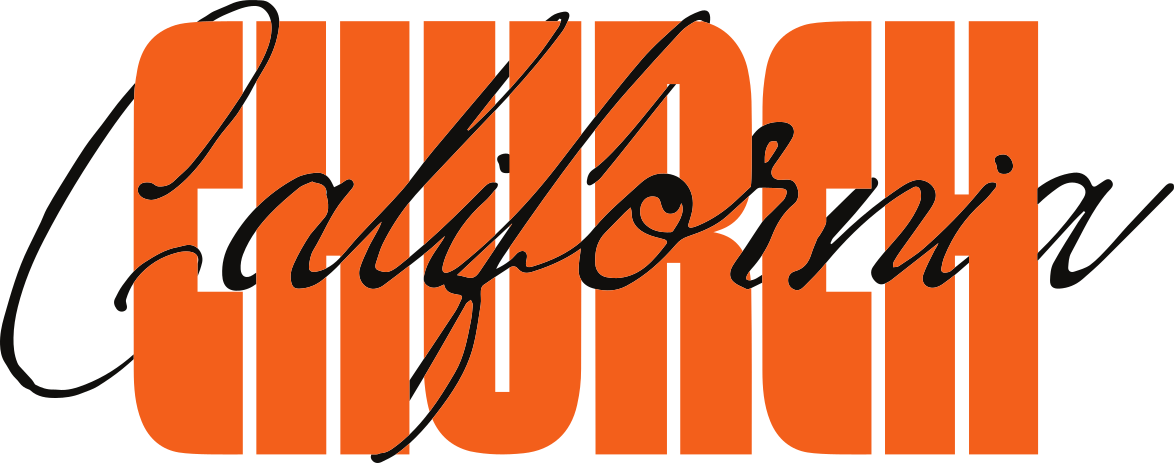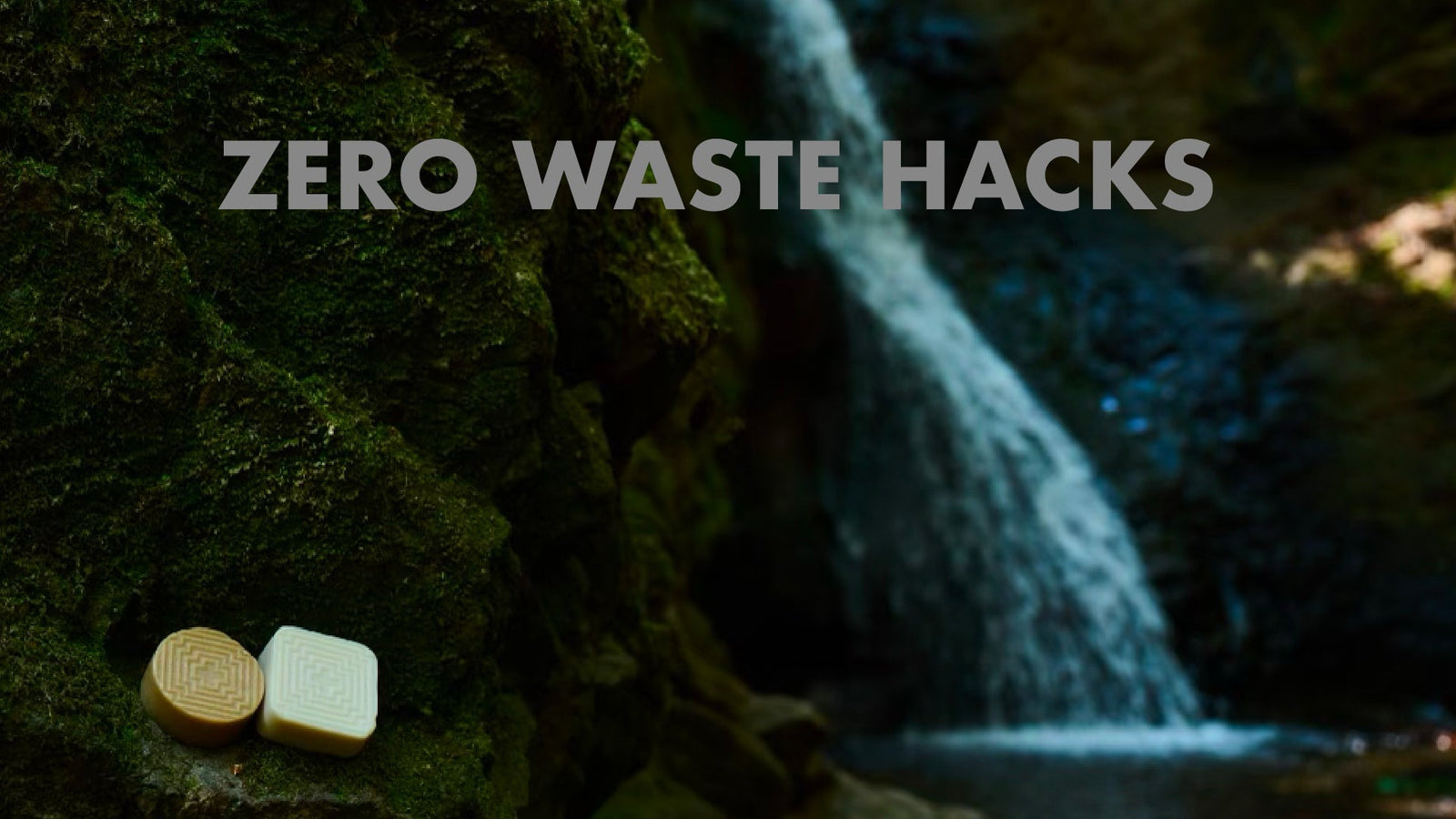Zero Waste Hacks - Reduce Your Eco-Footprint
What does "Zero Waste" mean?
If you've not heard the term "Zero Waste" yet, it's pretty self-explanatory - the goal is to eliminate what you waste to the point of no waste, or zero waste, in order to limit your impact on the ecology around you.
The Zero Waste concept was first introduced by Bea Johnson in 2013 in her book, "Zero Waste Home", in which she introduced the 5 principles of zero waste: Refuse, Reduce, Reuse, Recycle, and Rot.
Church California and Church Barber aim to waste as little as possible, for example always opting for sustainable, compostable methods of packaging whenever possible, and aiming to use zero single-use products in the barbershop. At home, we also aim for zero waste, and I've compiled a list of a few of my family's favorite ways to be zero waste below.
List of Zero Waste Hacks, organized by the 5 R Principles:
REFUSE: Instead of single-use plastic packaging, plastic bags, etc. - refuse those, and use these instead...
French Mesh Market Bags - the original from Filt, can be found here. These bags are very packable and easily fit in a small pocket, and yet they expand to carry a full load of groceries. They're incredibly strong, and very cool!

Food storage: Weck jars, and stainless steel containers - For food storage, Weck jars are the best. If you shop at farmers markets and/or places that offer bulk food, storing the food becomes necessary. Bring the jars with you to the market, and places like Rainbow Grocery in SF know to reduce the weight of the jar when pricing your food.
Beeswax Wrap find here - The ultimate solution to making perishable food keep longer, like cheese for example. No more saran wrap, beeswax wraps both work better and are better for the world.

Furoshiki wrapping - packing a lunch for kids, or wrapping a present? Furoshiki wrapping is a genius way of wrapping up your goods in reusable cloth. An ancient Japanese method of wrapping, it was made popular again in 2006 by Japanese Minister of the Environment, Yuriko Koike, to reduce the use of wasteful packaging.

Dish Wash Bar Soap - liquid soap is nearly always bottled in plastic. Refuse the use of plastic by switching to dish wash bar soap (it looks better too). Check out this one by Mater.

Shampoo & Conditioner Bars - like most liquid soaps, shampoo is also mostly bottled in plastic. Refuse the plastic and switch to shampoo and conditioner bars. We spent years perfecting ours, they outperform liquid shampoo and conditioner by a wide margin.

REDUCE: Become aware of your usage of electricity, water, and even services that create unnecessary waste
Natural light - why use light bulbs during the day? Natural light is the best. It's also free and renewable :) Ask yourself, do I really need this light on?
Choose the United States Postal Service - Each time you buy something online and choose UPS, FedEx, or Amazon Prime, you're creating a shipment and a process that would not otherwise be occurring. Talk about wasteful! On the contrary, the United States Postal Service has long established routes that are visited daily regardless of whether you're getting a package delivered. The USPS is also in trouble, they need your money - please support your local post office!
Shop Local and at Farmer's Markets - One of the best ways to connect to your local ecology is to eat seasonal food grown on farms around you. Farmer's markets not only foster a healthier way to eat and live, but they also greatly reduce the impact of getting food to consumers by going direct from farm to kitchen. For that reason, it's also less expensive than buying at a supermarket, making it a true WIN-WIN-WIN.

Buy direct from brands you love - when you buy products on Amazon, or from Target, etc., you're trading convenience for a tax on the brand. From a sustainability standpoint, you're also doubling the process for that product to get to you. It's got to be shipped from brand to retailer to you, versus direct from brand to you.
REUSE (possibly my favorite of the zero waste R principles): often times, to reuse is both feasible and better - here's a few of our favorite ways to reuse...
Straight Razor / Safety Razor - on of my favorite life hacks is to buy a steel safety razor (Feather is the best but there are many for much less money), which will last literally forever, and a 100 pack of razor blades, which will last at least a couple of years (many years for me personally). Get a better shave, without all of the waste that comes with cheap, plastic, "disposable" razors.

Berkey Water Filter- if you're not yet collecting your own natural spring water, the next best option is a Berkey Water Filter, which mostly eliminates the need for buying bottled water and does the best possible job filtering your tap water, making it drinkable!
Vintage Shops (and eBay) - buy used clothing at vintage stores and on eBay. Vintage clothing is an obvious win, but so is buying used clothing on eBay. Have a favorite brand you know fits you perfect? If you know the size, buying used on eBay is a no-brainer. It's less expensive, is sure to fit, and used clothing often looks better as it has a bit of built-in character. Super hack - if you have kids, buy really good clothing at a super steal price on eBay. For example, Fith kids clothes, which are super high quality and normally hundreds per item, are re-sold on eBay for pennies on the dollar.
Public Library - perhaps the most underutilized resource on Earth, the library is not only great for borrowing books, but in most cities the library is also a source for community resources, events, and even comes with included free or or discounted memberships to museums and more. Amazingly, library cards are also free! If you're in the bay area, the Mill Valley library is worth a visit!

Patch your clothing - Have a favorite pair of pants that have begun to wear thin, or a jacket that doesn't fit quite right? Take them to a tailor and get them patched up and/or cut to fit better.
RECYCLE: If you can't refuse, reduce, or reuse, you must at least recycle! Here's a few things to keep in mind:
Don't buy single-use products! If you're not aware yet, the sad truth is that nearly zero plastic is actually recycled- Flex your spending power to refuse single use products. Ask the companies you purchase from if they recycle or take back their packaging.
Send back your Church Pomade Jar - we'll re-use it! We also offer 10% per returned jar, toward the purchase of a single pomade. 1 jar = $3 off, 10 jars = a free pomade!
ROT: The best way to give back to Earth is to compost. Here's a few ways to do so:
Make your own coffee! If you're not already, you should be grinding your own beans daily and making coffee at home. It tastes better, doesn't require a trip to the local coffee shop nor a wasted cup, and you can compost the grounds. Coffee grounds make for great compost!
Keep a Compost Tin under your sink - easy and simple to use, and greatly reduces your trash buildup. We recommend stainless steel.
Of course there are many more ways to lead a zero waste lifestyle, but I hope this list is a good start!




